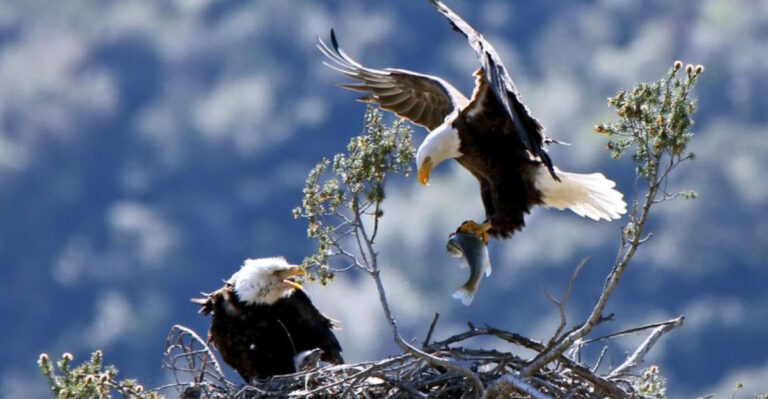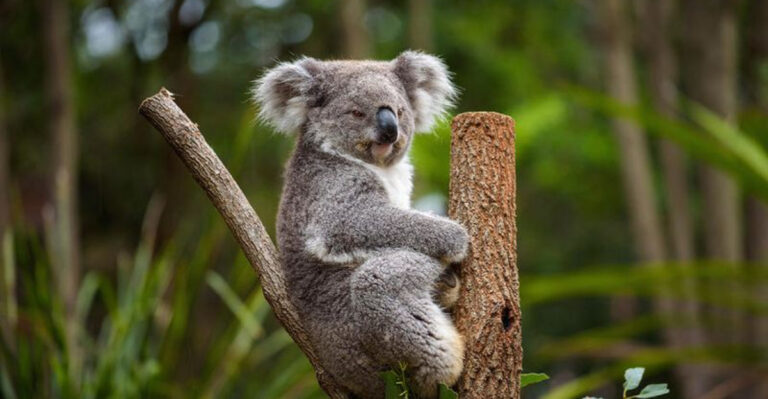11 Bold Animals That Reign Without Fear Of Predators
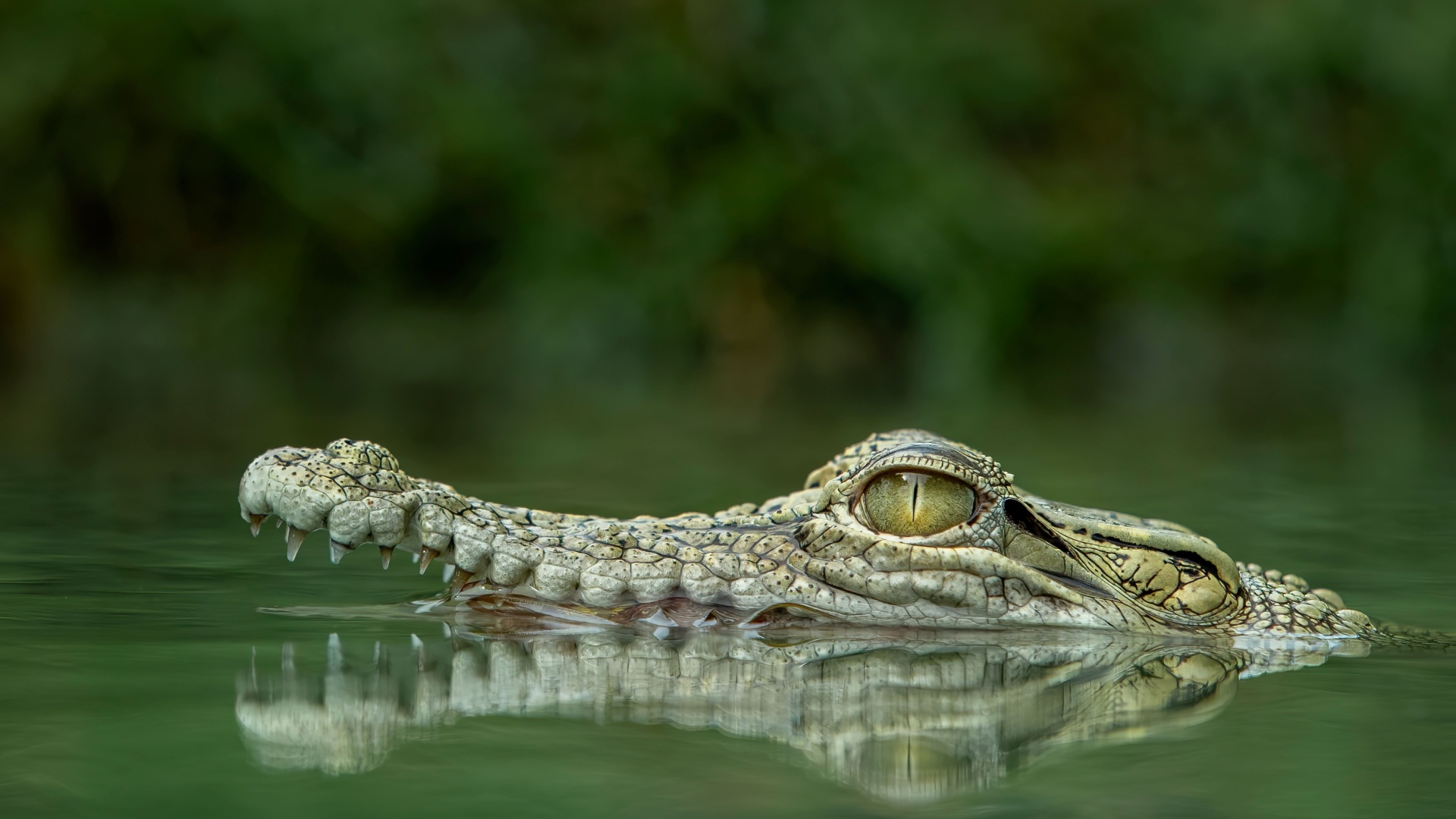
In the wild, survival often hinges on the ability to evade predators, but some animals live without that fear.
These bold creatures reign supreme in their habitats, standing at the top of the food chain with few or no natural enemies.
I’ve always been fascinated by these apex animals – powerful, resilient, and untouchable in their environments.
Here is a list of animals that embody dominance in the animal kingdom. From land to sea, these fearless creatures showcase the remarkable ways nature balances strength, adaptability, and survival.
1. Elephants
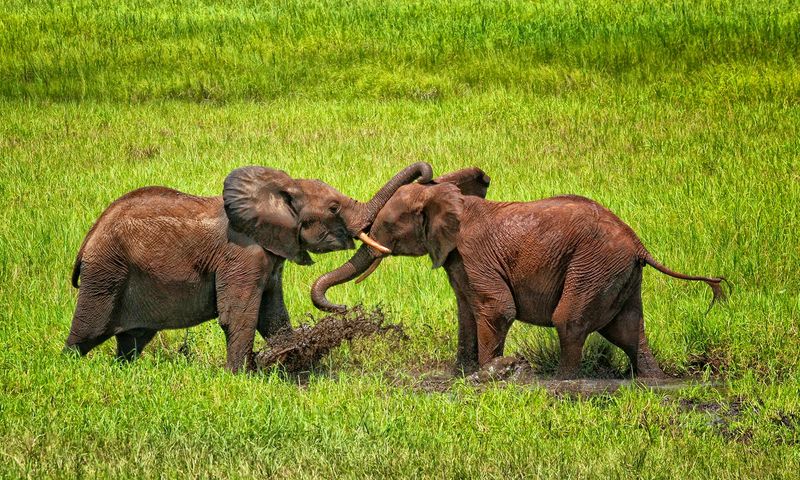
Elephants, the gentle giants of the animal kingdom, are known for their impressive size and intelligence. Their sheer size alone deters most predators, as even the hungriest lions think twice before attacking an adult elephant.
Additionally, elephants are social animals, often traveling in groups led by a matriarch. This group dynamic provides an added layer of protection, as there is strength in numbers.
Elephants also have long tusks, which serve as powerful weapons against any potential threats. They are known to charge at predators with surprising speed, making them a formidable force to reckon with. Moreover, their thick skin acts as a natural armor, protecting them from bites and scratches.
In many cultures, elephants are symbols of wisdom and strength. Their ability to remember paths to water and food sources over vast distances is remarkable.
This intelligence, combined with their protective nature, makes them one of the most respected animals in their habitat.
An elephant’s fearlessness is not just due to its size, but also its ability to defend itself and its family effectively. As they roam the African savanna, these majestic creatures showcase a unique blend of power and tranquility.
2. Polar Bears
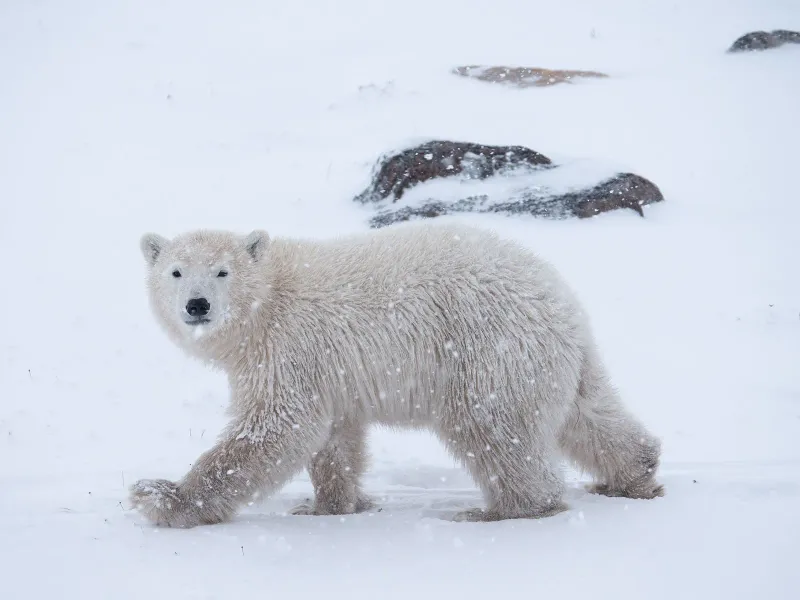
These magnificent creatures are at the top of the Arctic food chain, with no natural predators in their icy domain.
Polar bears are the largest land carnivores, and their size alone is enough to deter potential threats. Their strength and powerful build make them the ultimate predators in their environment, capable of taking down seals with ease.
One of the reasons polar bears are so fearless is their ability to thrive in harsh conditions. Their thick fur and blubber provide essential insulation against the freezing temperatures, allowing them to hunt and travel across the ice without fear.
Their sharp claws and strong jaws are perfectly adapted for their hunting needs, making them efficient and effective hunters.
Polar bears are solitary animals, and their independence is a testament to their confidence in their own abilities.
They roam the Arctic ice with a sense of purpose, always on the lookout for their next meal. While climate change poses a significant threat to their habitat, polar bears remain a symbol of resilience and adaptability.
Their fearless nature is a combination of physical prowess and an unyielding spirit that thrives in one of the planet’s most challenging environments.
3. Komodo Dragons
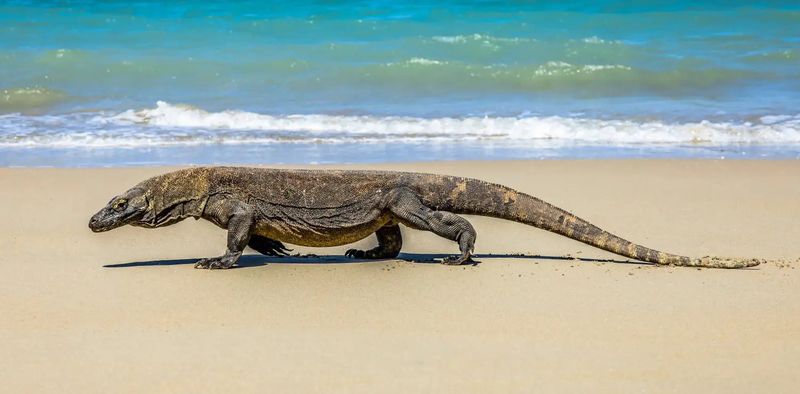
The Komodo dragon, native to the Indonesian islands, is a fearsome reptile that has no natural predators. As the largest living species of lizard, it commands respect and caution from all who encounter it.
With its powerful build and menacing appearance, the Komodo dragon is a master of its domain.
One of its most remarkable features is its toxic bite. The Komodo dragon’s saliva contains a mix of bacteria and proteins that can cause severe infections in its prey.
This biological weapon, combined with its hunting prowess, ensures that few predators dare to challenge it. Additionally, its tough skin provides a formidable defense against potential threats.
Komodo dragons are solitary hunters, relying on their keen sense of smell to locate prey from miles away. Their ability to take down animals much larger than themselves, such as deer and wild boar, further cements their position as apex predators.
In the wild, their fearlessness is evident in their commanding presence and unmatched hunting skills. As a result, Komodo dragons are revered and respected in their natural habitat, embodying a primal power that few other animals possess.
4. Orcas
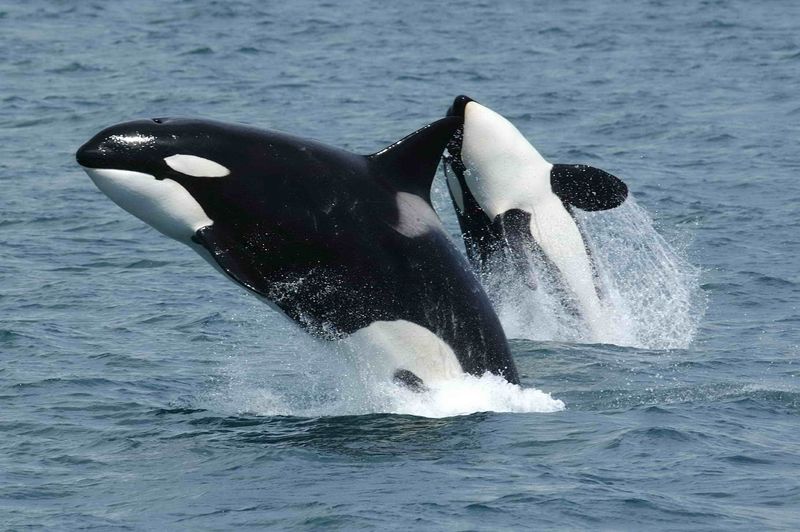
Orcas are apex predators of the ocean with no known natural predators. These marine mammals are highly intelligent and social creatures.
They live in pods, which are tight-knit family groups, and their coordinated hunting strategies are a testament to their intelligence.
Orcas hunt in packs, using sophisticated techniques to catch prey such as seals, fish, and even other whales.
Their black and white coloration, which is striking in the water, serves as a form of camouflage, helping them approach prey with stealth. Their strong bodies and powerful tails make them excellent swimmers, capable of traveling long distances in search of food.
Social bonds within pods are strong, and orcas communicate with each other using a variety of vocalizations.
This communication is crucial for coordinating hunts and maintaining social structures. Their fearless nature is a result of their top position in the ocean’s food chain and their ability to work together as a cohesive unit.
As they traverse the world’s oceans, orcas leave a lasting impression of intelligence, strength, and unity.
5. Honey Badgers
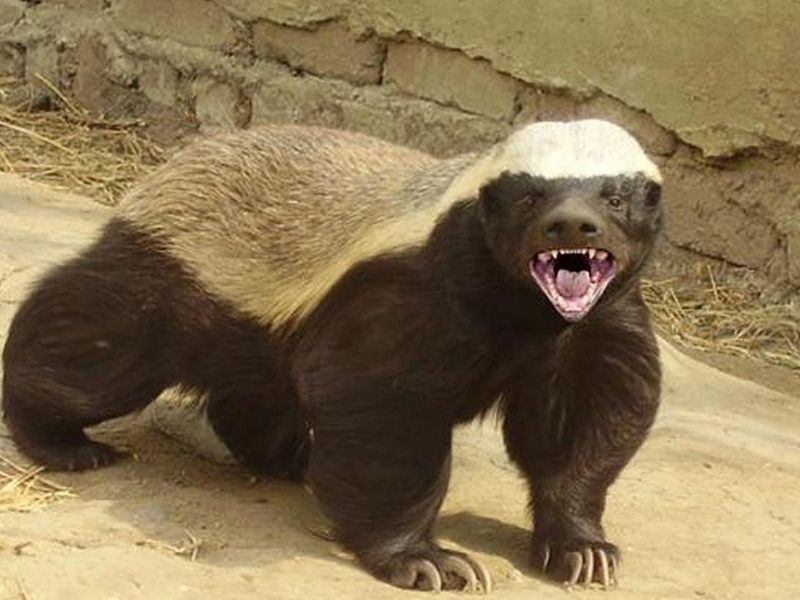
Found across Africa and parts of Asia, they have earned a reputation for their tenacity and resilience. Despite their size, honey badgers are not afraid to take on larger predators, often defending themselves with surprising ferocity.
One of the honey badger’s most notable features is its thick, loose skin, which provides protection against bites and stings.
This adaptation allows them to twist and turn against attackers, making it difficult for predators to hold onto them. Honey badgers have strong claws and sharp teeth, which they use to dig for food and defend themselves.
These animals are also known for their intelligence and problem-solving abilities. They have been observed using tools to extract food and even working together to achieve their goals.
Their fearless nature is a combination of physical toughness and a bold attitude, making them one of the most formidable creatures in their habitat. Honey badgers exemplify the saying “size doesn’t matter,” proving that courage and determination can triumph over larger adversaries.
6. Cape Buffalo
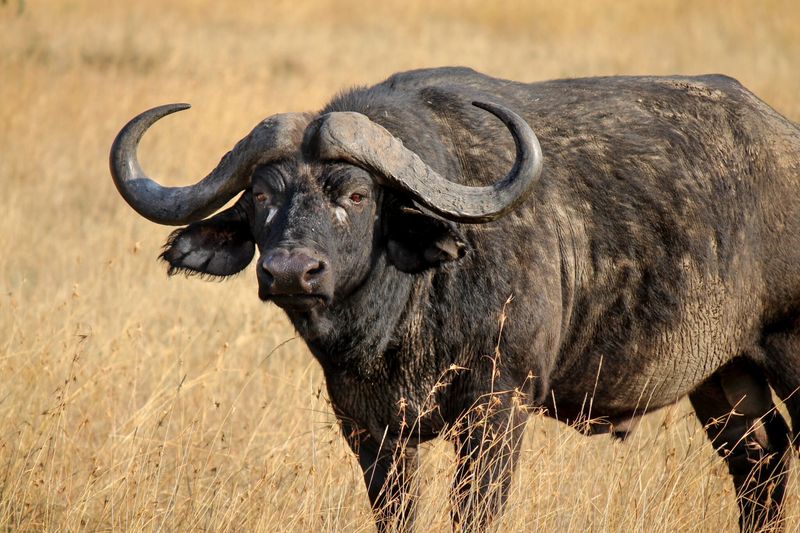
The Cape buffalo, also known as the African buffalo, is a formidable herbivore with a reputation for being fearless. These large mammals are native to Africa and are known for their strong social bonds and protective nature.
They live in herds, which can range from a few individuals to hundreds, providing safety in numbers.
One of the most distinctive features of the Cape buffalo is its large, curved horns. These horns are not just for show; they are formidable weapons used to fend off predators such as lions.
Cape buffaloes are known to charge at threats with incredible speed and determination, making them a force to be reckoned with.
Their fearless nature is also evident in their protective behavior towards their young and injured members of the herd. Cape buffaloes will work together to encircle and defend vulnerable individuals, showcasing their strong social structure and teamwork.
This cooperative behavior, combined with their physical power, makes them one of the most feared animals by predators in the African savanna. Their unwavering bravery is a testament to the strength of unity and the instinct to protect.
7. Wolverines
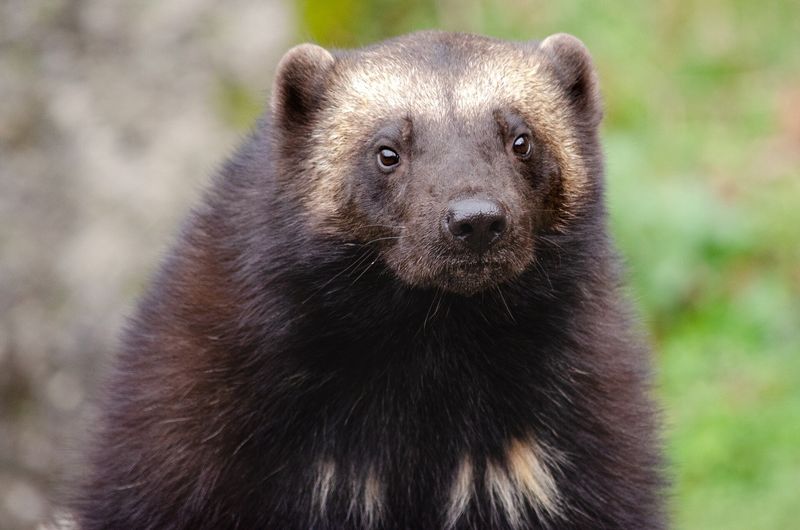
Wolverines are solitary and elusive creatures known for their incredible strength and tenacity. Found primarily in remote and snowy regions, these small but mighty mammals have a reputation that far exceeds their size. Despite weighing only 20 to 55 pounds, wolverines are fearless in the face of danger.
One of the wolverine’s most distinctive traits is its powerful jaws and sharp claws, which it uses to hunt and scavenge.
These features allow them to take down prey much larger than themselves, including deer and even elk. Wolverines’ strong sense of smell also aids them in locating food buried under deep snow, demonstrating their adaptability in harsh conditions.
Wolverines’ fearless nature is not just about their physical prowess; it’s also about their relentless spirit. They are known to travel long distances over rough terrain, showing determination and resilience.
Their solitary lifestyle requires them to be self-reliant and resourceful, which further enhances their fearless reputation. In the wild, wolverines are symbols of strength and courage, embodying the spirit of survival against all odds.
8. Cassowaries
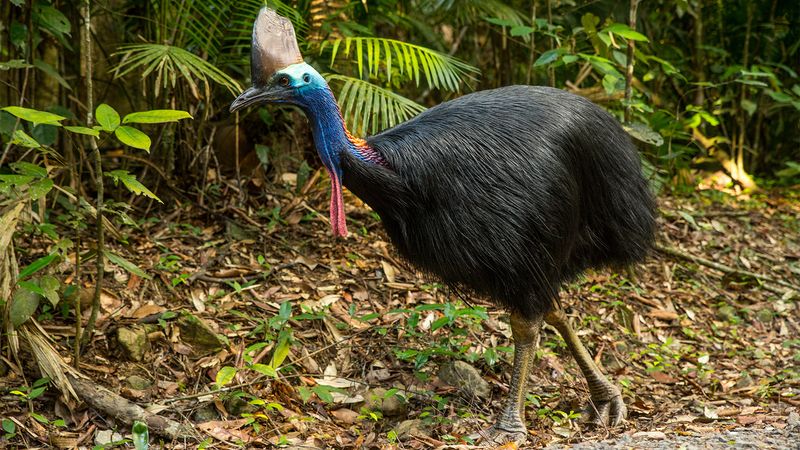
Known for their striking appearance and powerful legs, these birds are often considered among the world’s most dangerous. Their fearless nature is evident in their territorial behavior, as they are known to aggressively defend their space.
One of the most distinctive features of cassowaries is their helmet-like casque on top of their heads, which is used to push through dense forest undergrowth.
Their strong legs not only allow them to run fast but also serve as potent weapons, equipped with sharp claws that can inflict severe injuries.
Cassowaries are solitary birds that prefer to avoid humans, but when threatened, they exhibit remarkable bravery. Their ability to blend into their surroundings and navigate through dense forests with ease is a testament to their adaptability.
Despite their intimidating reputation, cassowaries play a crucial role in their ecosystem by dispersing seeds, thereby contributing to forest regeneration. Their fearless demeanor and unique adaptations make them fascinating and vital components of their habitat.
9. Tasmanian Devils
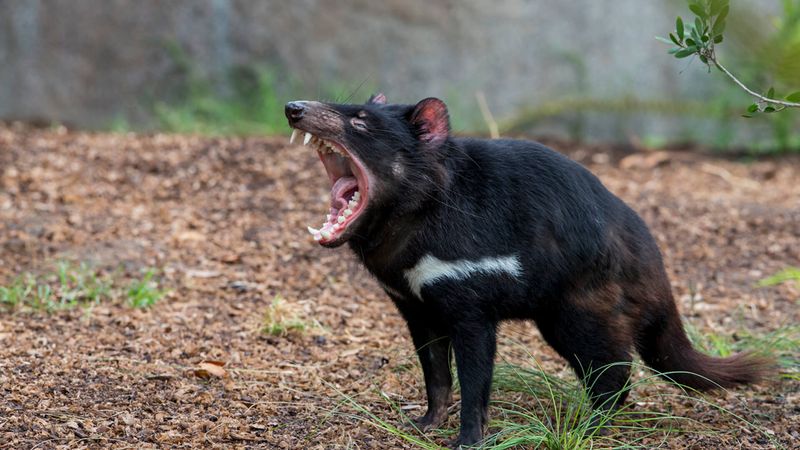
Small but ferocious marsupials known for their loud and unsettling screeches! These nocturnal animals have a fierce reputation, and their fearless nature is a significant part of their survival strategy. Despite their small size, they exude an intimidating presence in the wild.
One of the key attributes of Tasmanian devils is their powerful jaws and sharp teeth, capable of crushing bones and consuming entire carcasses.
This ability allows them to eat almost any part of their prey, making them efficient scavengers. Their strong sense of smell helps them locate food, even from a distance.
Their fearless reputation is further enhanced by their aggressive behavior when threatened. Tasmanian devils are known to stand their ground, displaying their teeth and making loud vocalizations to ward off potential threats.
This boldness, combined with their physical capabilities, ensures that they remain dominant in their environment. As they continue to play a vital role in their ecosystem, Tasmanian devils symbolize the power of fearlessness and adaptability.
10. Harpy Eagle
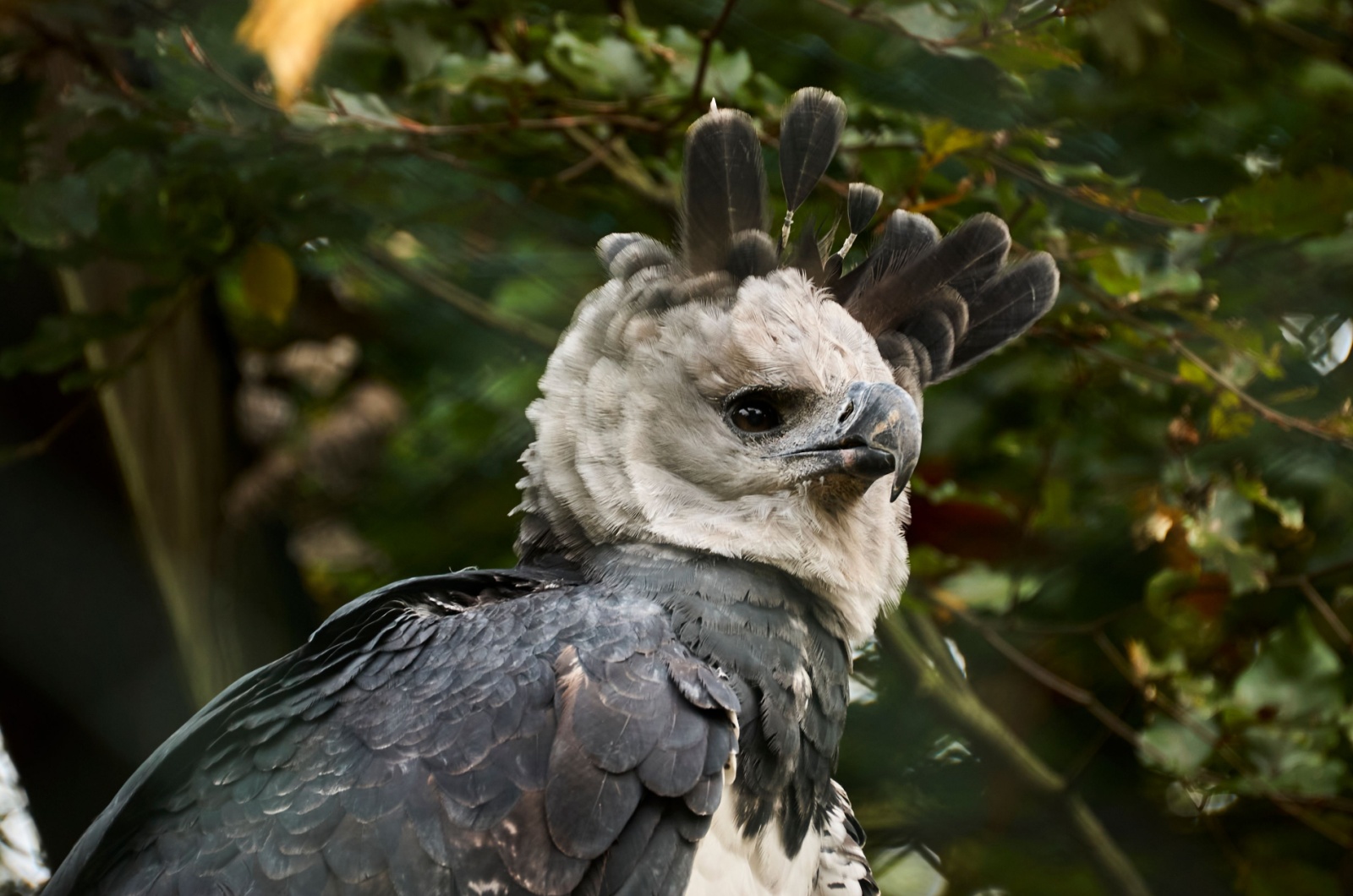
Credit: Shutterstock
The harpy eagle reigns as one of the most powerful birds of prey, dominating the rainforests of Central and South America.
With a wingspan of up to 7 feet and strong talons capable of crushing bones, this raptor has no natural predators. Preferring the forest canopy, it preys on sloths, monkeys, and other arboreal creatures, using its keen eyesight and swift hunting skills.
Its position at the top of the avian food chain makes it a symbol of strength in its ecosystem. The harpy eagle’s formidable presence ensures it faces no threats from other predators, securing its apex status in the wild.
11. Saltwater Crocodile
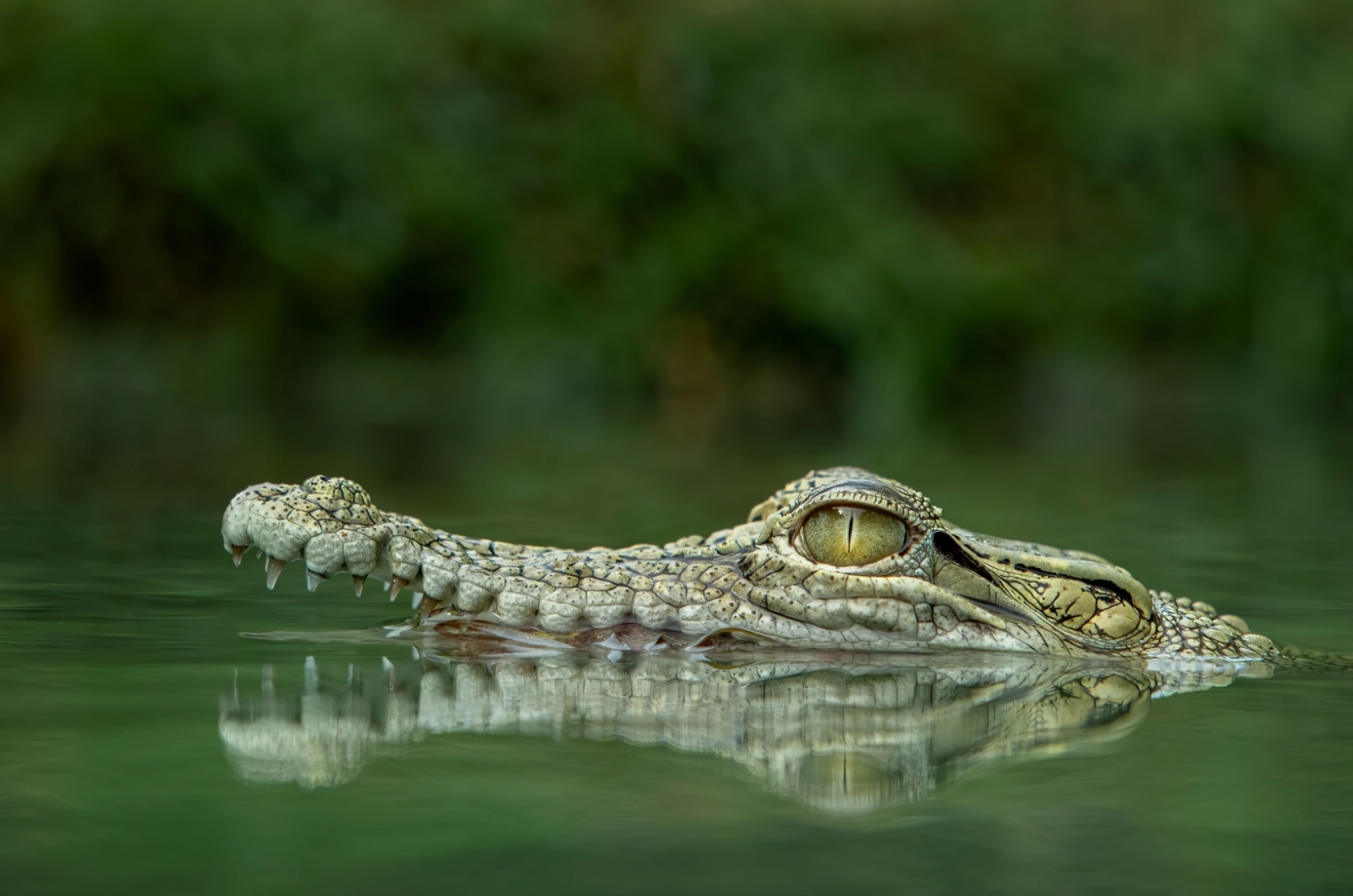
Credit: Shutterstock
Saltwater crocodiles are apex predators, ruling their habitats with unmatched dominance. Found in coastal areas and rivers across Southeast Asia, Australia, and the Indo-Pacific, these massive reptiles can grow up to 23 feet long and weigh over 2,000 pounds.
Their size, strength, and powerful jaws make them invulnerable to attacks from other animals, leaving them without natural predators.
Equipped with a tough exterior and an ambush hunting style, saltwater crocodiles can take down prey as large as buffalo or sharks. Their combination of physical prowess and strategic hunting ensures their place at the top of the food chain, unmatched in their ecosystems.

